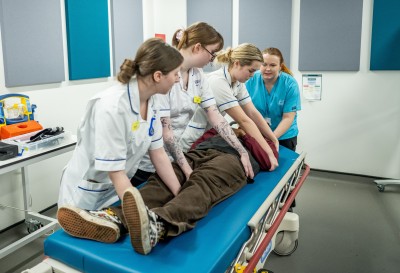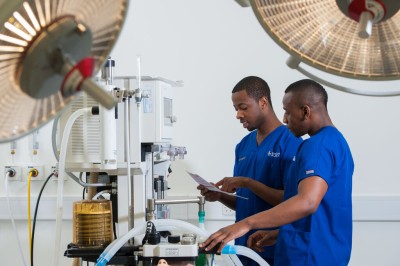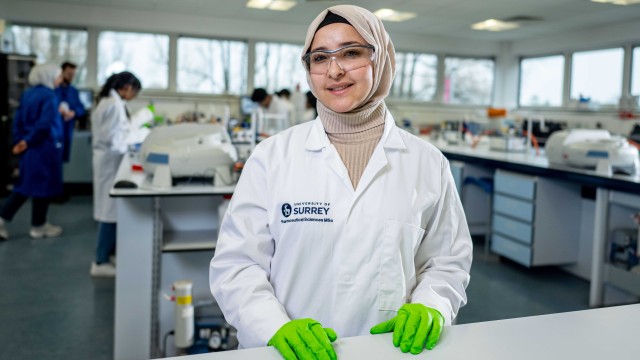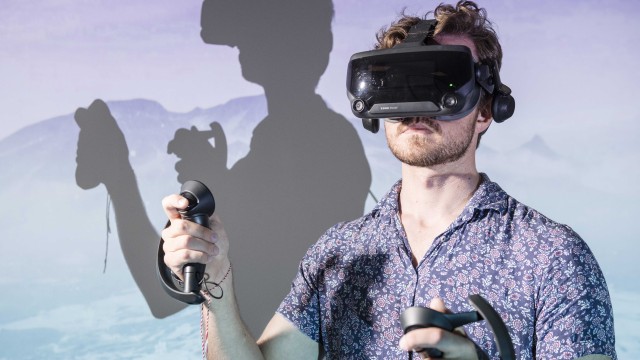
Transformative research and innovation
The University has an impressive heritage in finding solutions to challenging real-world problems. The vision for 2041 is for Surrey to build upon these deep foundations, to be recognised internationally as a hub for game-changing innovation, delivering excellence in research in close collaboration with our commercial and governmental partnership network.
Explore Vision 2041
Aspirations
- To deliver solutions to the world’s most pressing and challenging problems through pioneering, cross-disciplinary research and innovation.
- Recognising that the most inspiring environments to work in are diverse, inclusive, open and supportive, we aspire to embed a research culture that will make Surrey a magnet to attract, nurture and retain top talent.
- Building on our rich heritage in innovation, we seek to cultivate strong partnerships with a diverse array of collaborators, and drive real-world impact, providing solutions to the world’s most urgent and complex problems.
The goals
The approach
- Investing in researchers: we will nurture and champion a creative, curiosity-driven culture that embraces development and lifelong learning, and enables agility for innovation and enterprise.
- Pan-University Institutes: Surrey’s research ecosystem is founded on pioneering, internationally recognised landmarks of disciplinary excellence through research. We will continue to monitor and support areas of emerging excellence and aim to extend their global reach and impact through key strategic international networks, collaborations and partnerships.
- Growing scales and excellence: we will strengthen excellence by attracting and retaining high-performing research academics with a drive for research translation and innovation, supporting a substantial increase in REF2029 performance through research power and outputs and a step-change in annual research grant and contract income.
Our Institutes
The existing Institutes for People-Centred Artificial Intelligence and Sustainability are already harnessing their interdisciplinary power to provide creative, collaborative and disruptive solutions and far-reaching insights and innovations for some of the world’s greatest challenges. We will continue to support their growth and global reach through strategic partnerships with international industry, governments and academia. This will enable us to deliver research and innovation at scale, offering opportunities for significant collaboration, training and development for staff and students, and high-value knowledge exchange.
Three further Institutes

The strategic intent is to create several new pan-University Institutes around the interdisciplinary strengths we have. The final scope, title and timeline for each of these will be subject to further planning and development in the first five years and beyond.
Space
Over the past four decades, Surrey has significantly influenced the global space sector, leading the development of the ‘New Space’ era through small satellite innovation. This pioneering work led to two of Surrey’s most successful spin-outs – including Surrey Satellite Technology Ltd (where the founding innovation was the basis for a Queen’s Anniversary Prize). Through the creation of the Surrey Space Institute we expect to reassert our world-leading role in space engineering with technology-driven research in small spacecraft as well as establish a new global reputation around digital aspects of space and satellite applications.
The space cluster initiative, which is being spearheaded by Surrey, alongside Portsmouth and Southampton Universities, accounts for 25% (£4.2bn) of the UK’s space business turnover.
Lifelong Health and Ageing Well

Enabling people to remain productive and independent for longer, by harnessing new technologies and addressing health inequalities, is vital and valuable. The estimated economic benefit of increasing life expectancy is £29 trillion per additional year of health span.
We will build on our existing internationally recognised Surrey Sleep Research Centre and the UN Centre of Excellence in Ageing, alongside multidisciplinary research strengths that span health sciences, nutrition, social sciences, physical and biomedical sciences, and engineering.
Through the School of Medicine and the Surrey Clinical Research Facility, we will build a strong research and innovation partnership with the local NHS Trusts, to enable and support a breadth and depth of research integration and impact from bench to bedside.
Future of Work

This prospective new Institute will stand at the forefront of examining the intricate relationship between technological advancement, workforce evolution and societal wellbeing. With a mission to navigate the challenges posed by AI and digital transformation, the Institute adopts a cross-disciplinary approach, leveraging Surrey’s established expertise in the future of work, digital economy, education, psychology, social sciences and humanities.
It will generate insights that foster an inclusive, productive workforce prepared for the future, advance policy recommendations that ensure equitable technology access and use, and support lifelong learning and adaptability among workers.
Key research themes include - the impact of AI on job displacement and creation, the digital economy’s effects on traditional employment sectors, the psychological and social ramifications of remote and automated work, the role of education in preparing a tech-savvy workforce, and the influence of political and social structures on technology governance.




